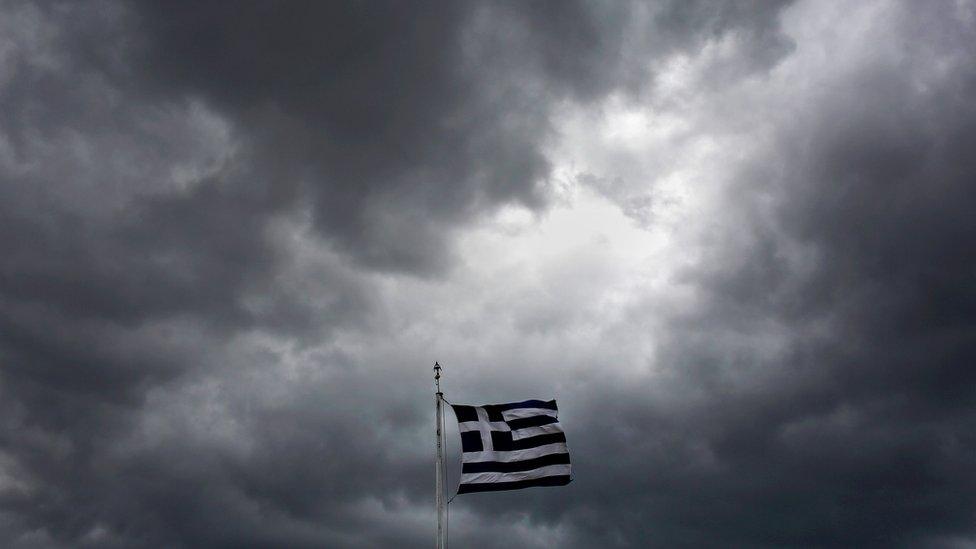Will ECB keep Greece afloat for another week?
- Published
- comments

One of the oddest bits of central banking behaviour in the world right now is that pretty much every week since Greece's financial problems went nuclear again, at the start of the year, the European Central Bank has let it be known in a cloak-and-dagger way that it is still providing cooling fluid to the whole combustible mess.
So usually on a Wednesday "sources close to the ECB" or "people familiar with the situation" have briefed the major financial wires that the central bank's governing council has given permission to Greece's central bank to lend a bit more to Greece's banks, to keep them afloat.
Here is a typical example, external.
And the likelihood is that again today, we will probably learn in this opaque manner that the amount the Bank of Greece can lend to Greece's tottering banks, to allow those banks to repay their depositors, has risen again - from the current ceiling of 83bn euros.
This is a very rum job.
Because the instant the ECB says it won't allow an increase in central-bank lending to the banks, the game would be up for Greece. There would be a run on the banks, because depositors would rightly at that point fear their money wasn't safe, and the banking system and economy would collapse.

The European Central Bank headquarters in Frankfurt
So there is probably no more market-sensitive decision being taken anywhere in the world right now than whether the ECB is prepared to keep propping up Greece's bank.
That is why it is somewhat unnerving - to put it mildly - that the ECB doesn't disclose its actions in a normal transparent way, and trusts instead to unattributable briefings.
The point, I suppose, is that the ECB wants to maintain the fiction that the power of life and death over the Greek financial system and economy is actually with Greece's creditors, namely the IMF and eurozone governments.
But hang on a minute, there is another huge creditor as well, which has been intimately involved in the bailout discussions.
It's the European Central Bank, which is owed 20bn euros directly by the Greek government and considerably more indirectly via the collateral placed with it and with the Bank of Greece for credit provided to commercial banks.
So the ECB cannot escape its massive conflict of interest here.
Anyway, the point is that at the moment the bailout talks collapse, and the Greek government is unable to keep up the payments on its 320bn euros of official debts, the implicit value of Greece's debts - both public sector and private sector - would collapse.
At that juncture, Greek banks would - of course - be bust. They would be unable to lend, deposits would be frozen, and the entire economy would seize up.
Now of course the convention in central banks is that they can only lend to solvent banks.
But it is unarguably the case that Greece's commercial banks are only alive right now because the central bank is lending to them.
The notion that they are only suffering from a liquidity crisis, and that their assets are fundamentally ticketyboo is a fiction as magnificent as War and Peace - almost no economist in the world thinks the Greek government can repay all its debts, and few would place big bets on the ability of the private sector to keep its creditors, notably the banks, whole.
And yet the ECB is maintaining the fiction that the banks are sound, because it dare not be dragged into big politics.
So I imagine that yet again we will learn today, via off-the-record briefings to the wires, that the Bank of Greece is lending a bit more to commercial banks.
Of course that is the rational thing to do, pending some kind of resolution of the rescue talks between the Greek government and eurozone governments, led by Germany
But I am not sure the ECB's reputation is enhanced by the maintenance of the conceit that its judgement about lending to the banks is a routine technical one - especially if Greece collapses, and it ends up losing a fortune of eurozone taxpayers' wealth.